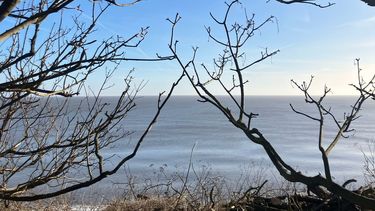Dr Seán Williams - a BBC New Generation Thinker - on his latest radio broadcast: "The programme was off the back of storms that raged across Britain at the beginning of this year, with Dutch names like that of our colleague, Henk... weather doesn't keep to national boundaries. The sands of the Wadden Sea shift from the Netherlands to Germany and Denmark, and literary stories and cultural narratives are transnational. So we took the coastline of the Wadden - recording from across the North Sea in Dunwich - as our Germanic microcosm for responses to a global problem: the great floods, now because of climate change."
Seán walks along ditches, looks out to sea, and turns to the pages of history and literature about the Wadden Sea – archipelagos along the opposite coast of Northern Europe, stretching from the Netherlands to Germany and Denmark. He reflects on how people living in small communities along the threatened coastline wait for a flood: whether stoic, scared, or serene; whether determined to be the last man standing or to surrender to the storm tides with awe. When a tide is imminent, they pass the time playing board games and telling stories.
Surging waters and shifting sands are nothing new along coastlines such as these, but the question on everyone's mind is - will the dykes hold? The answer amid rising sea levels from climate change, is that some will certainly not.
Seán draws on a famous nineteenth-century novella called Schimmelreiter about a German dyke-master by Theodor Storm, talks to eco critic and reader of literature about the Wadden Sea Dr Katie Ritson, from the Rachel Carson Center for Environment and Society at the University of Munich; and to Juan Palacios and Sofie Husum Johannesen – directors of a new Danish film that premiered in Amsterdam in late 2023 called As the Tide Comes In.
Listen to the BBC Radio 3 programme: Waiting for the Flood
Seán teaches German culture from the eighteenth century to the present, reads texts that speak to present-day problems with our students, and teaches on Sheffield's "Germanic" module - a module that combines the study of both German and Dutch cultural histories, along with Henk de Berg and Henriette Louwerse


